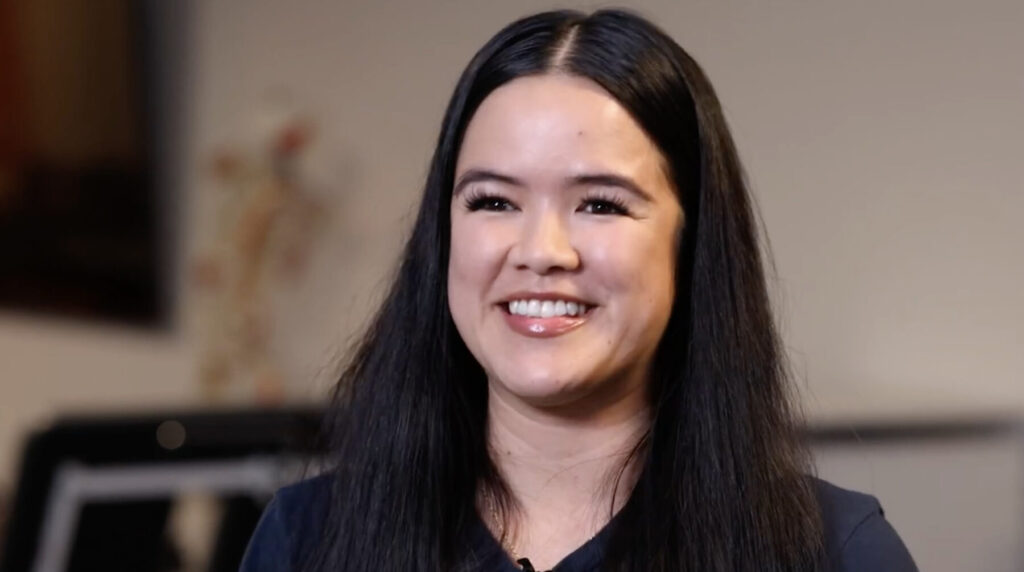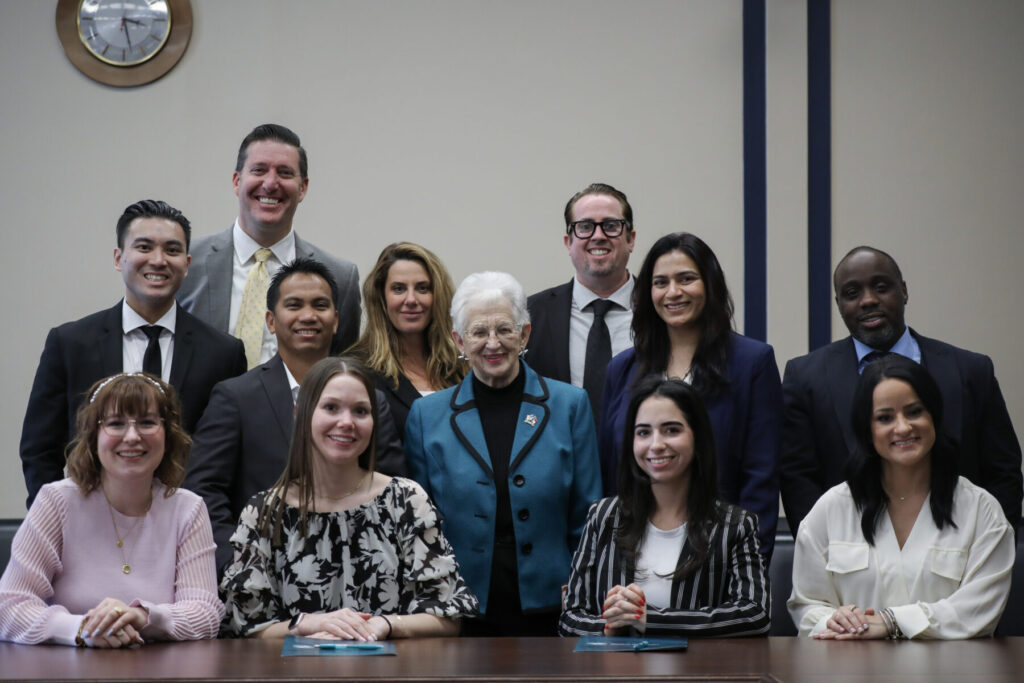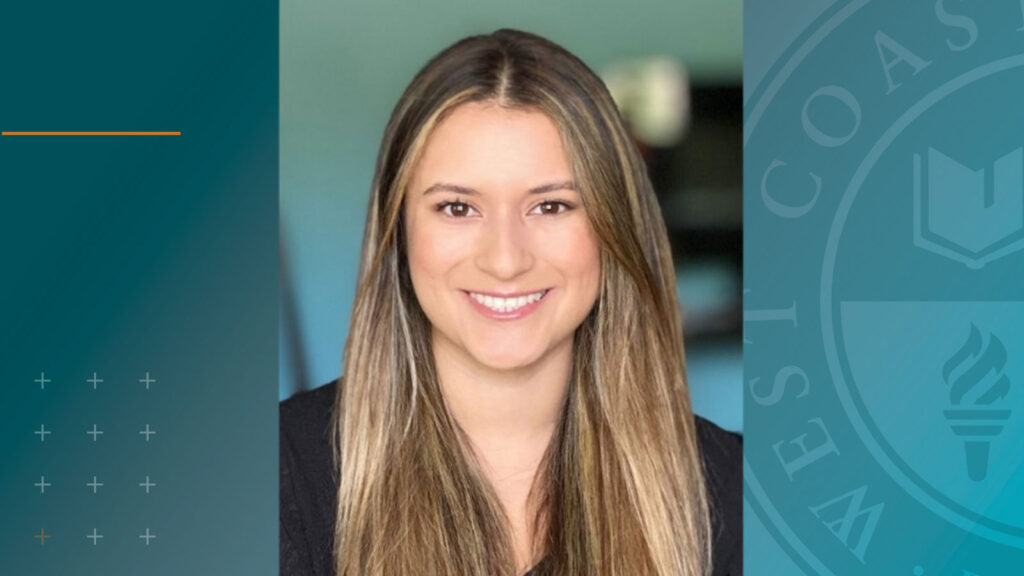Thomas Swift and Aaron Huie were part of the very first Doctor of Physical Therapy class at West Coast University. Being part of that inaugural group helped form bonds between classmates and created a cohort that still supports each other long after graduation.
 “I think being in the first cohort, it kind of creates some more camaraderie, just because we’re all taking this leap of faith together. Only your classmates really know what you’re going through,” Thomas said.
“I think being in the first cohort, it kind of creates some more camaraderie, just because we’re all taking this leap of faith together. Only your classmates really know what you’re going through,” Thomas said.
“Going through PT school in itself is a challenge,” Aaron added, “but I think because we were in the first class and we were coming together to make decisions on how we can help shape the program, not only did we come together academically, but we got together in general. It was kind of awesome to see how all of us grew.”
The bonds that started in WCU’s DPT program have continued to support alumni in their careers. “Just recently, I hit someone up via text,” Thomas said, “just like ‘I don’t deal with pelvic health that much. I know you do. Can I get some pointers and can you help me out?’ Just like that, we pick up where we left off.”
Aaron and Thomas have followed similar career paths since graduating from WCU. They both work for an outpatient orthopedic center and have grown to director roles at their local clinics.
After the program and after having gotten to know all of your classmates, where did you go from there?
Aaron: It was a straight year of clinical rotation. In my first rotation, I was lucky enough to go to Hawaii. It was amazing. The clinic was on the beach! I learned a lot — but we all went our separate ways and a year felt like a long time. I finished my rotations in San Francisco. That’s where I got a real appreciation for orthopedics, which is what I’m specializing in now.
Thomas: I already had a couple of offers lined up, one of them being where both Aaron and I work now. What led me to where I am now was a couple of different factors. I was already familiar with the company since I had done a rotation with them. My commute was pretty much non-existent. I was riding my bike a mile to work. I had a newborn when I started working, so it was nice to be able to go home for lunch. Now, both Aaron and I are clinic directors of our facilities, so we’ve grown a lot together from grad school into the positions we hold today.
You managed to grow in your career rather quickly. To what do you attribute this? Would you say it’s talent, preparation, or what?
Thomas: I think it’s a combination of everything. Timing is one. Our company is nationwide with hundreds of sites, so there’s a lot of opportunity for growth. You don’t cap out the second you start. The other thing is they’re not going to give you the position if they don’t believe in you.
 From a business standpoint, they want someone who is going to make them money, right? So, if you’re not good at your job and you don’t have that business mentality, they’re not going to choose you. They’re going to choose someone else who is actually going to drive the numbers, which is a big part as a director.
From a business standpoint, they want someone who is going to make them money, right? So, if you’re not good at your job and you don’t have that business mentality, they’re not going to choose you. They’re going to choose someone else who is actually going to drive the numbers, which is a big part as a director.
Aaron: For me it was similar. One thing that helped me show that I was capable of being director was mentoring students. Thomas and I, we mentor students year-round. It’s our way of giving back and showing the next class what working in the real world is. One of my other positions is site clinical coordinator of education. My job is basically to receive all of these schools’ requests for internships and manage which clinic can take however many students.
So, is becoming a faculty member — for WCU or somewhere else — something that you see in the future?
Aaron: For me, yes. This is something I saw myself doing a long time ago. I’ve done a lot of things in my young career to try to help me fit a teaching role. I will be in a teaching role at a Physical Therapy Assistant program in January.
Thomas: Most definitely, and I think that’s why we continue to take students. I used to think CIs — Clinical Instructors — existed because students needed experience and the CIs wanted free labor. But the more I do it, the more I realize that doing it right, it’s actually more work. You have to invest time in them to hopefully have some payoff towards the end of the rotation, where they feel more comfortable practicing more independently.
Since leaving the program, how often do you guys get to hang out and has your friendship continued beyond graduation?
Thomas: We keep in touch relatively frequently. We know what big things are happening in each other’s lives. I consider Aaron one of my close friends and he has helped me to acquire job opportunities after graduation. It also helps that we share the same role within the same company, so sometimes it’s nice just to vent and get other people’s take on situations.
What tips would you give a new student starting the program?
Thomas: In undergrad, I wasn’t really a big group study person, but I don’t think I could have passed this program had I not done a study group and developed that camaraderie. I’ve seen classmates, some who unfortunately dropped from the program, they tried to do it by themselves for whatever reason, I always saw those people struggle a lot more.
Aaron: One thing I would say is, because WCU is so new, our reputation isn’t really out there yet. I would challenge future students to just really give it their all get WCU’s reputation up there. There’s no reason why WCU shouldn’t have a top tier reputation.
WCU provides career guidance and assistance but cannot guarantee employment. The views and opinions expressed are those of the individuals and do not necessarily reflect the beliefs or position of the school or of any instructor or student.


